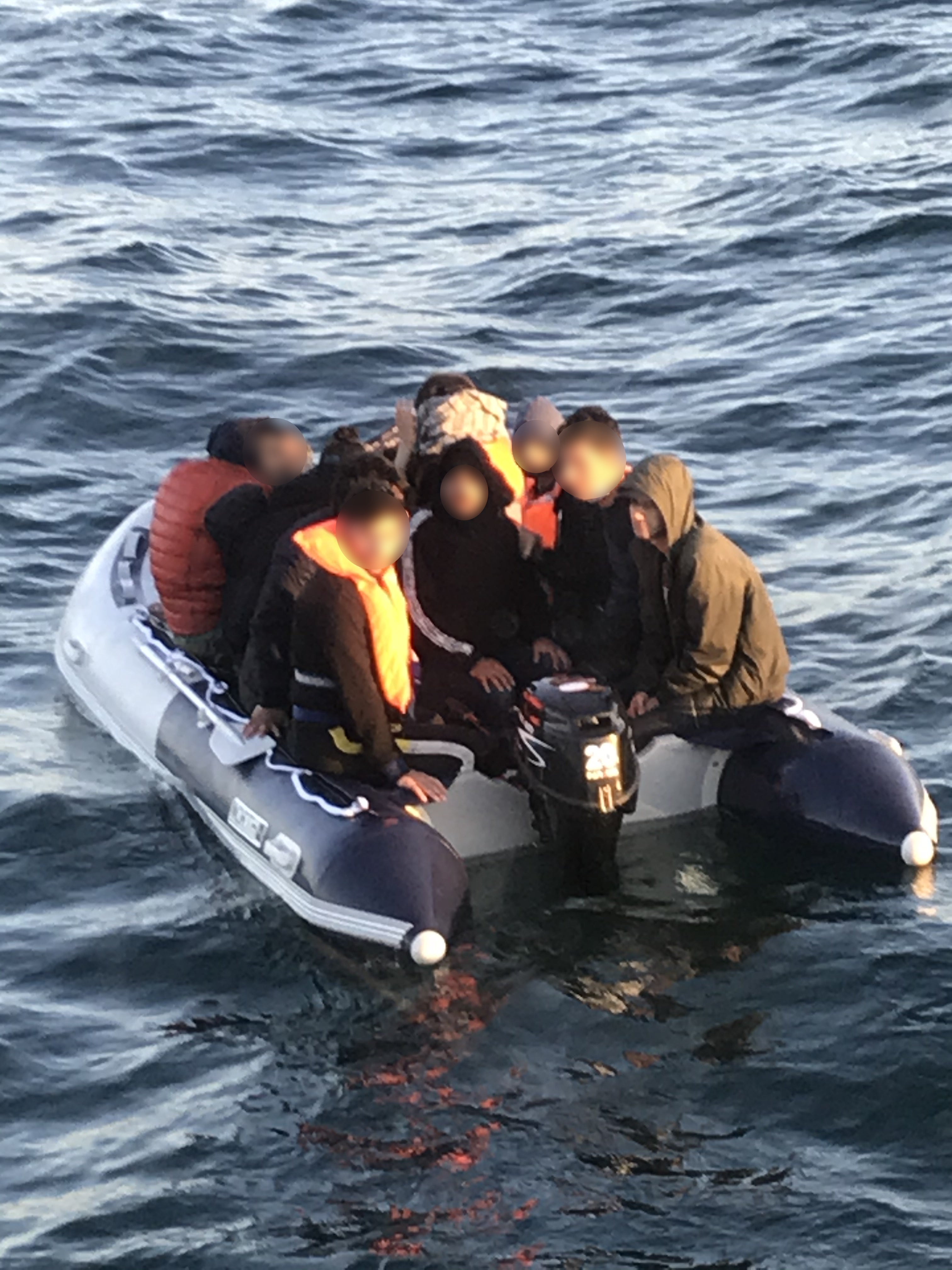Convictions quashed for asylum seekers wrongly jailed for steering dinghies across Channel
Court of Appeal says same ‘error of law’ was seen in 12 cases quashed so far, as more asylum seekers fight convictions

Your support helps us to tell the story
From reproductive rights to climate change to Big Tech, The Independent is on the ground when the story is developing. Whether it's investigating the financials of Elon Musk's pro-Trump PAC or producing our latest documentary, 'The A Word', which shines a light on the American women fighting for reproductive rights, we know how important it is to parse out the facts from the messaging.
At such a critical moment in US history, we need reporters on the ground. Your donation allows us to keep sending journalists to speak to both sides of the story.
The Independent is trusted by Americans across the entire political spectrum. And unlike many other quality news outlets, we choose not to lock Americans out of our reporting and analysis with paywalls. We believe quality journalism should be available to everyone, paid for by those who can afford it.
Your support makes all the difference.Seven asylum seekers who were wrongly jailed for steering dinghies across the English Channel have had their convictions quashed.
Court of Appeal judges threw the convictions out on Tuesday because of the same “error of law” that saw five other cases overturned last year.
Lord Justice Edis previously found that the law had been “misunderstood” by the Home Office and Crown Prosecution Service (CPS), and that a legal “heresy” had developed, making asylum seekers believe they had no defence against charges of assisting unlawful immigration.
Two more appeals by asylum seekers are to be heard by the court later this year, while the cases of several people who pleaded guilty based on flawed legal advice are going to the Criminal Cases Review Commission.
A higher number of asylum seekers are believed to have been wrongly convicted, but in each instance an individual appeal must be lodged before the case can be quashed.
Several of the appellants, who had already served their prison sentences, attended court for Tuesday’s hearing, while others watched via video link from custody.
Nima Bari, an Iranian man who was jailed for three years in January 2021 and falsely labelled a “small-boat people-smuggler” by the Home Office, said: “I lost 20 months of my life for no reason.”
Mr Bari was cleared of facilitating illegal entry by steering a boat, but must take further legal action to overturn a separate charge of entering the UK illegally himself, because he mistakenly pleaded guilty.
The other appellants who had their convictions for assisting unlawful immigration quashed were Altaib Mobarak, Mohammed Naeemaee, Amir Keshavarz, Khedr Mohamed, Mohsen Babakhani and Sayed Hossein Daroubord.
The Court of Appeal also refused to allow a retrial for Fariboz Taher Rakei, whose conviction was quashed in December.
Lord Justice Edis said there was no “sufficient distinction in his case that would require the radically different treatment his retrial would cause”.
The CPS did not seek a retrial in any of the seven appeals heard on Tuesday, or oppose the asylum seekers’ challenges.

“In these particular circumstances, the stance taken by the prosecution is plainly right – the legal issues have all been settled, the trials were in all relevant respects indistinguishable from the trials that resulted in convictions that have already been quashed,” Lord Justice Edis ruled.
“They all raise the same point in relation to the meaning of entry into the UK for the purposes of the Immigration Act. In each, the crown court proceeded on an error of law in that regard.”
Lord Justice Edis, Mrs Justice May and Sir Nicholas Blake had previously said that asylum seekers who were intercepted by authorities in the Channel, or who were taken into immigration detention after reaching a port, had not legally entered the UK.
Their ruling on four appeals in December said: “As the law presently stands, an asylum seeker who merely attempts to arrive at the frontiers of the United Kingdom in order to make a claim is not entering or attempting to enter the country unlawfully.
“Even though an asylum seeker has no valid passport or identity document or prior permission to enter the United Kingdom, this does not make his arrival at the port a breach of an immigration law.”
Judges noted that the government was attempting to change the law to mean that asylum seekers could be prosecuted for “arrival”, rather than “entry”, in(to) Britain, but said they were dealing with the current law.

The Nationality and Borders Bill would also increase the maximum sentence in respect of the offence of assisting unlawful immigration to life, as well as raising the penalty for illegal entry from six months’ imprisonment to four years.
A government document said the new law “will allow prosecutions of individuals who are intercepted in UK territorial seas and brought into the UK”.
The Independent previously revealed that the Home Office had triggered the wave of unlawful prosecutions after deciding to target asylum seekers who steer Channel boats.
An investigation found that the department had asked the CPS “what more can be done” as the number of crossings rose in 2019, and then dramatically shifted its tactics.
The following month, the Home Office contracted a drone company to start filming asylum seekers in dinghies crossing from France.
Immigration Enforcement then presented footage of “pilots” to the CPS in relation to the charge of assisting unlawful immigration, which had never been used in such circumstances before.
The Home Office has so far refused to publicly acknowledge the Court of Appeal judgments, with Priti Patel continuing to label all Channel crossings “illegal” despite the findings.


